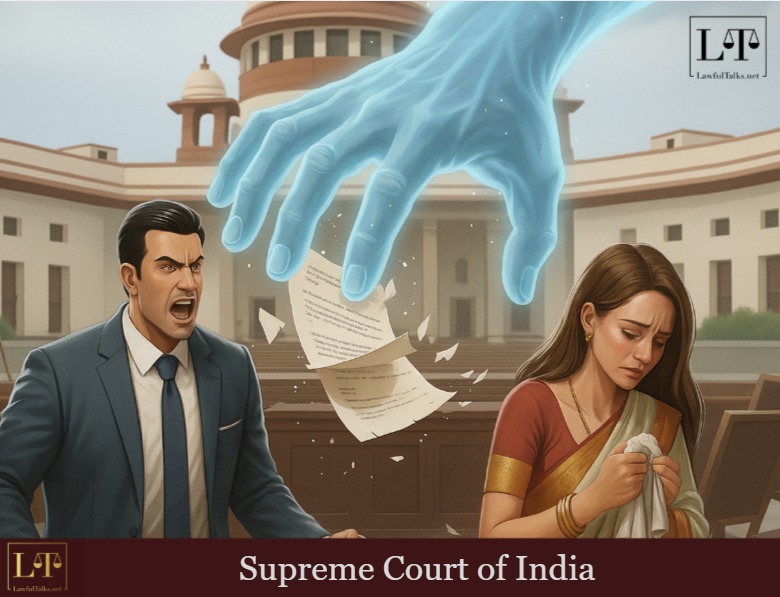Allahabad HC Sets Aside Afzal Ansari's Conviction, Allows Him to Continue as MP

The Supreme Court of India recently delivered an important judgment clarifying the procedural law under the Protection of Women from Domestic Violence Act, 2005 (DV Act). A bench comprising Justice Rajesh Bindal and Justice Manmohan heard an appeal challenging a December 10, 2024 order of the Madhya Pradesh High Court.

Background:
In the case, the petitioner had approached the High Court under Section 528 of the Bharatiya Nagarik Suraksha Sanhita (BNSS), 2023, the provision corresponding to Section 482 of the Code of Criminal Procedure (CrPC) seeking to quash proceedings initiated under Section 12(1) of the DV Act.
The High Court, however, declined to take up the plea. It reasoned that its inherent powers under the BNSS (or CrPC) could be invoked only after the magistrate had passed an order in proceedings under the DV Act and not while those proceedings were still underway. In other words, the Court held that as long as the case remained pending before the magistrate, it could not step in to exercise its extraordinary jurisdiction.
It observed that, “as long as the proceedings are continuing before the magistrate and no final order has been passed, the inherent power under Section 482 CrPC cannot be invoked.” On that basis, the petition was dismissed as not maintainable.
The Supreme Court disagreed with this interpretation and overturned the High Court’s order. It held that a petition filed under Section 528 of the BNSS to quash proceedings under Section 12(1) of the DV Act is maintainable at any stage even while the matter is pending before the magistrate.
Through this ruling, the Court made it clear that parties do not need to wait for an order to be passed under the DV Act before approaching the High Court. The inherent powers of the High Court can be invoked at any stage to prevent misuse of the legal process or to address potential injustice. This interpretation safeguards litigants from being left without a remedy merely because their case is still pending before the magistrate.
To reinforce its reasoning, the bench referred to its earlier landmark decision in Shaurabh Kumar Tripathi vs Vidhi Rawal (2025). In that judgment, the Supreme Court had categorically affirmed that petitions challenging proceedings under Section 12(1) of the DV Act are maintainable under the inherent powers of the High Court.
Referring to that precedent, the bench noted that the legal position is well settled “wherein it was opined that a petition under Section 482 of the CrPC challenging proceedings emanating from Section 12(1) of the DV Act is maintainable.”
Consequently, the Supreme Court found that the Madhya Pradesh High Court’s view could not stand. The bench observed:
“In view of the aforesaid judgment of this Court, the view expressed by the High Court holding the quashing to be not maintainable, cannot be legally sustained.”
Accordingly, the Supreme Court set aside the High Court’s order and remitted the case for fresh consideration on its merits. The parties were directed to appear before the High Court on November 11, 2025.
Case Title: VKrishnamma & Ors Vs Garima Bais

Nandani Mishra
Second Year, B.SC LLB, (cybersecurity) Hons, National law University
Latest Posts
Categories
- International News 19 Posts
- Supreme Court 390 Posts
- High Courts 383 Posts



















































































































































































































































































































































































































































































































































































































































































































































































































